Family snapshots
Written by Tearfund | 15 May 2018


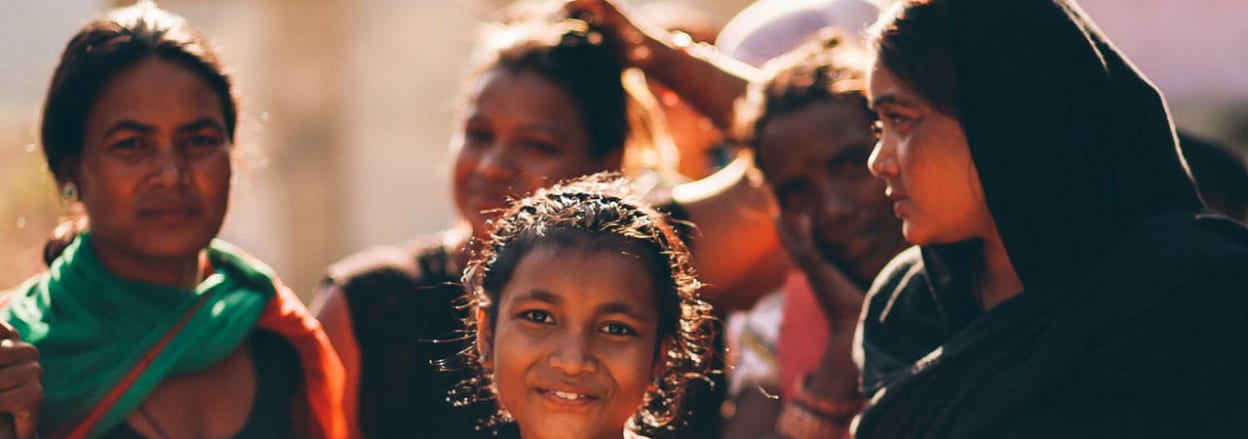
Written by
Written by Tearfund
Most parents would like to give their children a better start in life. However, for the 767 million worldwide who live below the international poverty line of $1.90 a day, there are often huge barriers to overcome. They may be tangible, such as lack of food or education, or intangible such as stigma or lack of participation in decision-making.
These stories show how a small catalyst, such as the availability of training or a micro loan, can inspire an individual to go on to improve the living standards of their whole family and sometimes of the wider community too.
Central African Republic
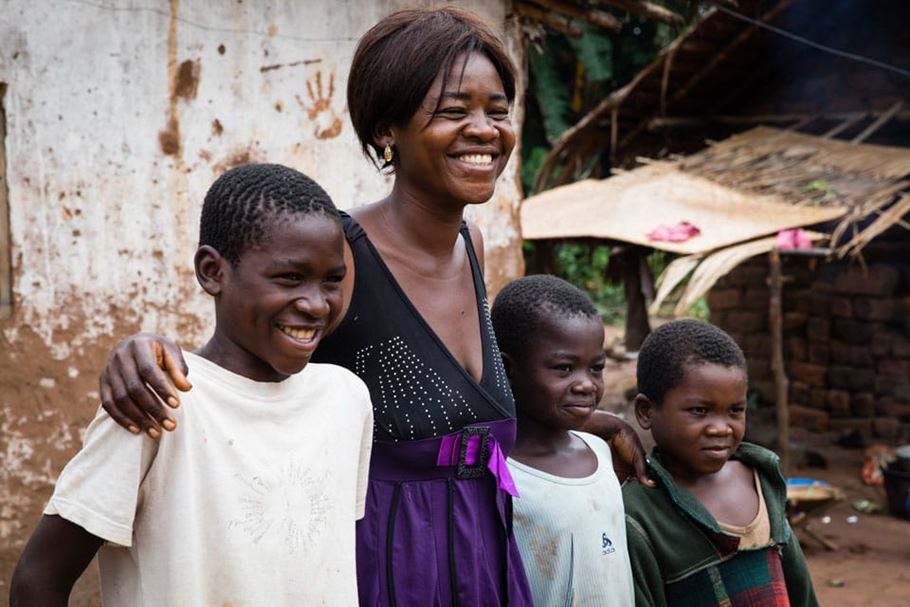
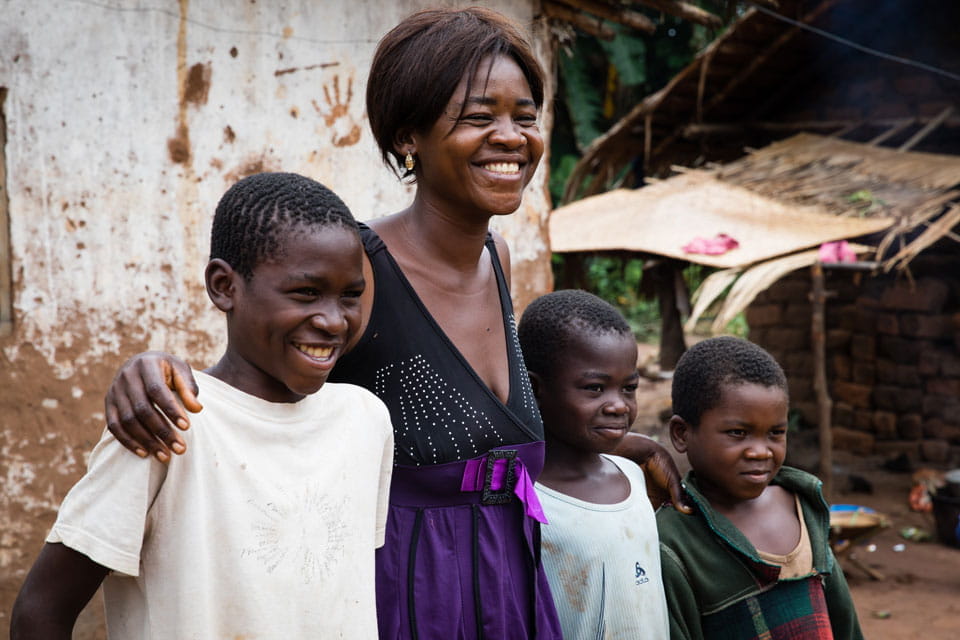
Monica and her children.
Monica was unable to go to school after her father died when she was just six. Unable to read, write, count or manage the money she earned from selling her home-made cakes, she was aware of her disadvantage:
‘Sometimes, if someone bought something from me, I would give back more change than what I should give,’ she explained, adding that without literacy you are ‘bound to be fooled by people.’ Monica – who was one of the 40% of young women in her country, Central African Republic, who are illiterate – took matters into her own hands by attending Tearfund partner ACATBA’s literacy training.
‘I’ve been very motivated to attend the school,’ she said, ‘nobody can fool me anymore.’ With her new-found confidence and skills Monica is determined to go on to get qualifications, so that her family continue to benefit: ‘I can’t let my children stay down, I’ll support them, to be educated and get ahead.’
Nepal
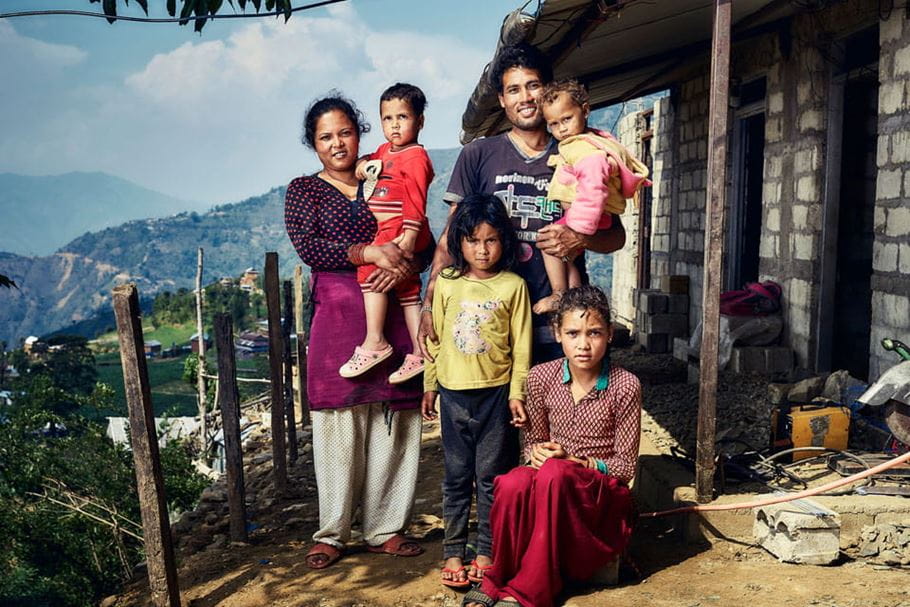
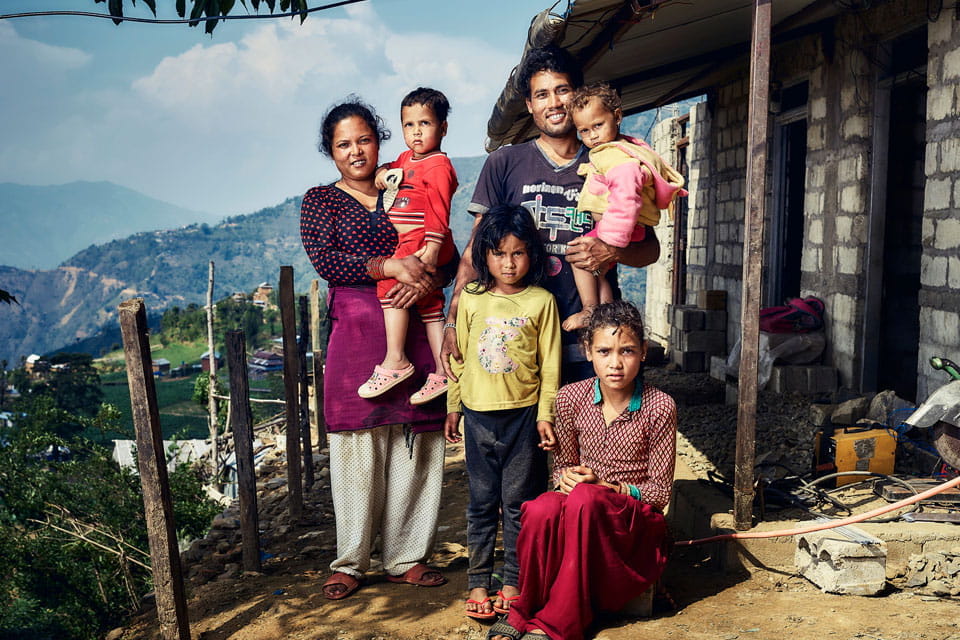
Kushal and family by their quake-proof home.
Kushal, a Nepali farmer, stands with his family outside the home they are building using earthquake- proof techniques. Before the 2015 earthquake, Kushal had struggled to irrigate his land, his family went short of food as a consequence. His community’s requests to the authorities for a water supply had been unsuccessful.
After the earthquake, Kushal joined a group set up by Tearfund partner MRC, which provided support and materials to help the community develop water pools and learn organic farming skills.
‘I’m now able to meet the daily needs of my family,’ says Kushal. ‘Using the water pool we have been able to do our farming on a large scale which has improved our life standard.” But he’s also passing the knowledge he learnt from MRC on to other local people. ‘Before the training we just used to live for ourselves, it was a self-centred life. Now we wish to work for the community.’
Egypt
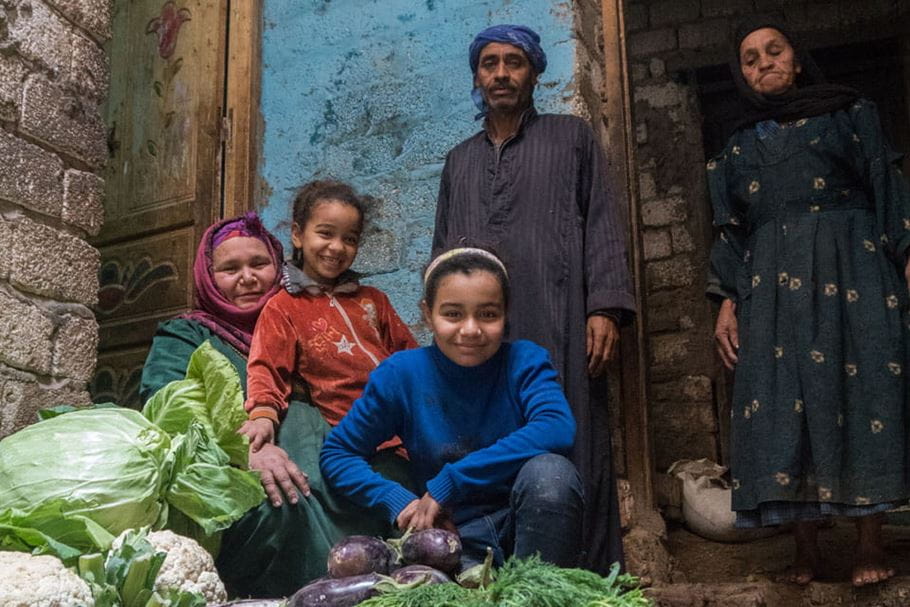
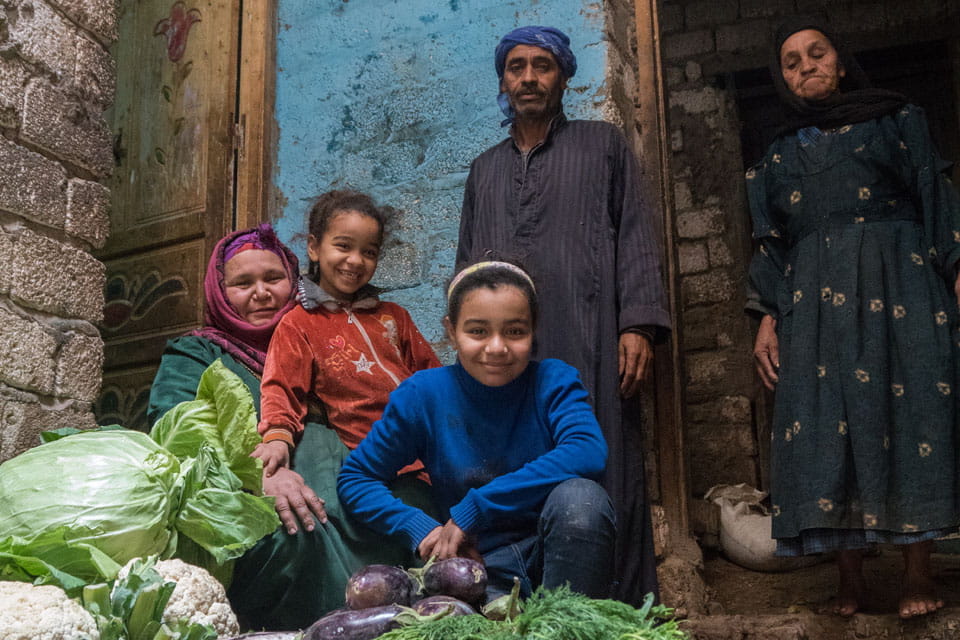
Diana and her family show off their produce.
Diana from Egypt poses with her family in front of the vegetables she sells every day on the street. She set up her business, using a microloan from Tearfund partner Think & Do, to increase her family’s standard of living. Her husband had struggled to provide for them as a casual farm labourer, only being hired for about one day in ten.
Diana’s new income buys food for the family, pays her younger children’s school fees and has enabled two older children to get married. ‘I hope all of them get married’ she says of her six children. The family, which also includes her mother-in-law, have bought a sofa and a ladder and have plans to install a water tap and buy beds to save them sleeping on the floor.
Ethiopia
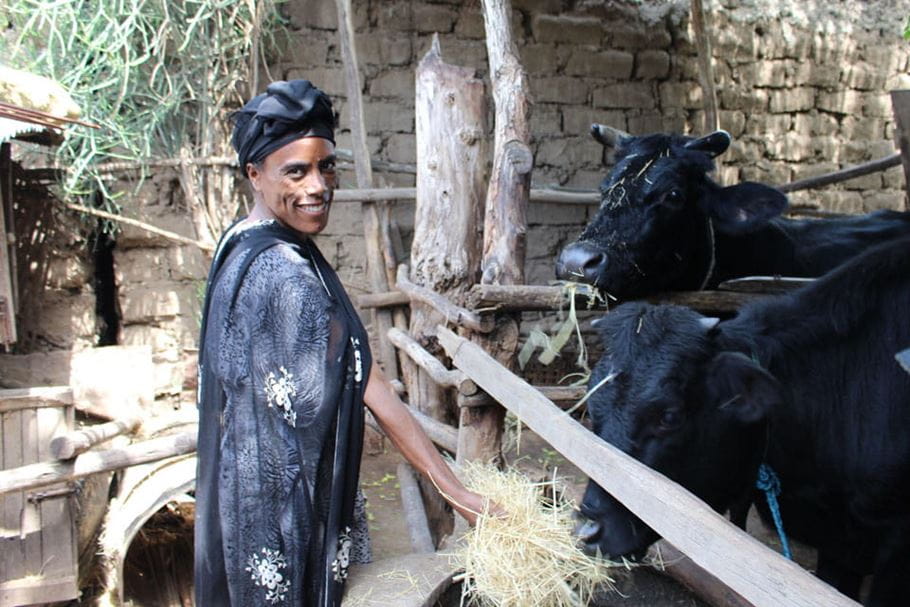
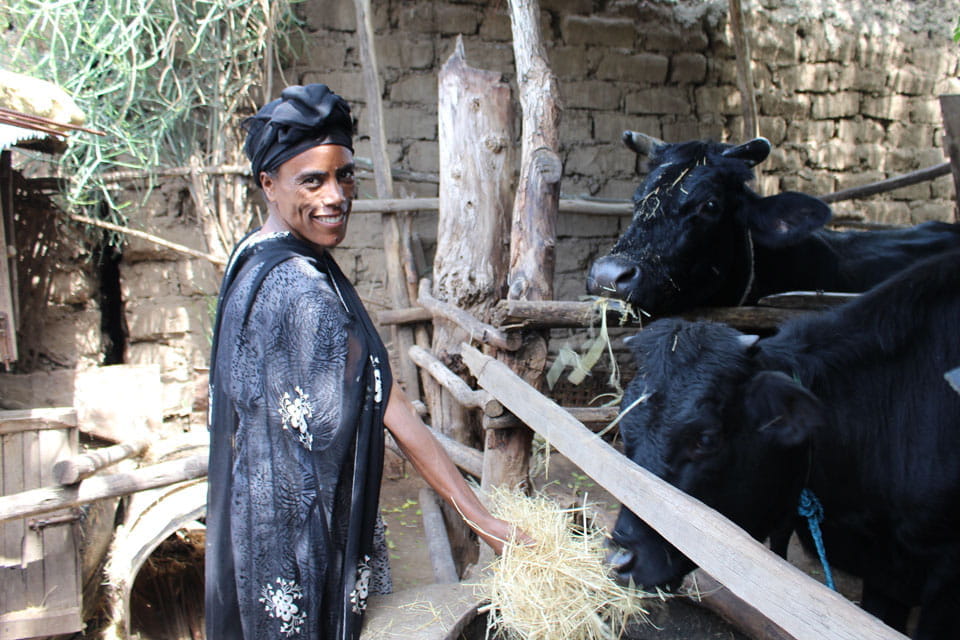
‘We all know you can’t survive poverty alone - you never know when it will be your turn’, says 42-year-old Tsige from Ethiopia. Being part of a women’s Self-Help Group enabled her to take a small loan from their collective savings to buy a calf and once it had grown up, sell milk to local businesses – she became known as ‘The Milk Lady’.
She built her enterprise up to two cows and a calf and was able to take a bigger loan to extend her house and rent out rooms. Her entrepreneurial spirit has benefited not only her own family – she has a husband and two children – but her wider community: she’s now treasurer for the Self-Help Group, is passionate about women standing up for themselves, and is deeply involved in pastoral care for other members, including a widow who is almost blind.
Ivory Coast
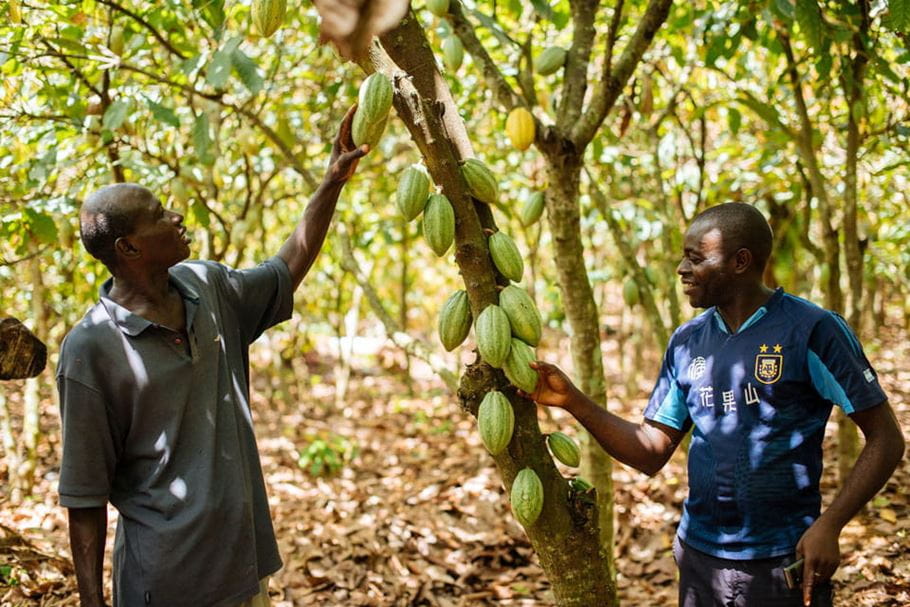
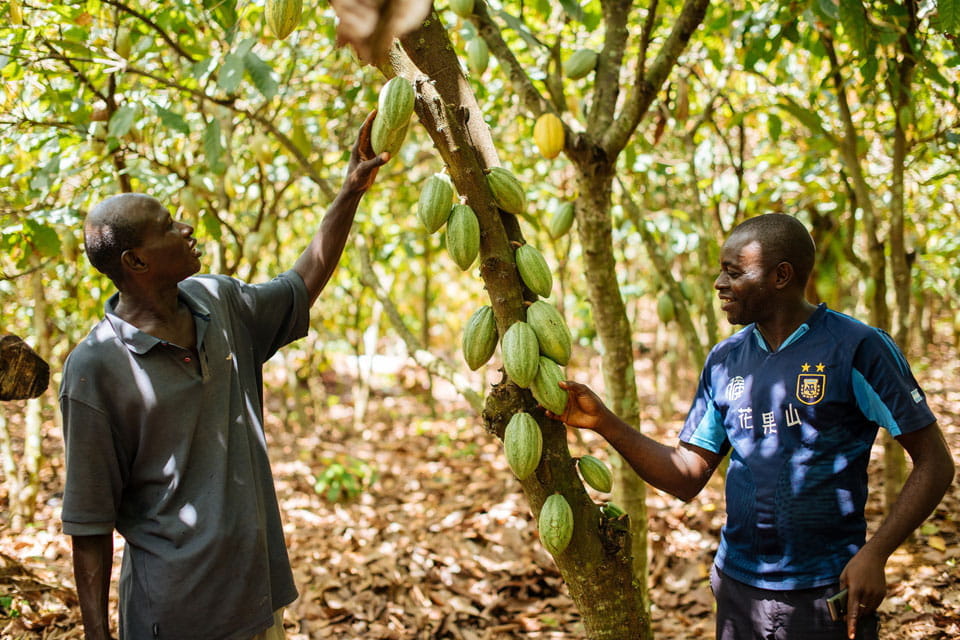
Cocoa grower Richard inspects his crop with his buyer Ablau. Father-of-five Richard seized the opportunity to take agricultural training offered by Tearfund partner ADIAS.
He learnt how to make and use his own compost, saving the money he would have spent on chemical fertilisers, as well as increasing his income by improving the yield. ‘If you are patient you will get good results,’ he said of the new techniques, adding ‘after using the compost I saw that my plants had more leaves and were producing more pods. Using organic homemade fertilisers and compost means I can send my children to school.’
Brazil
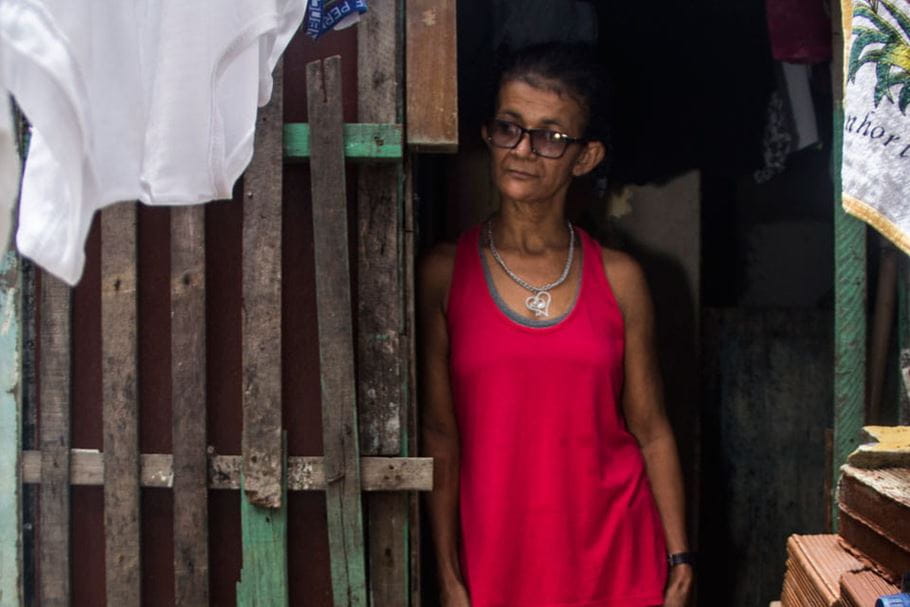
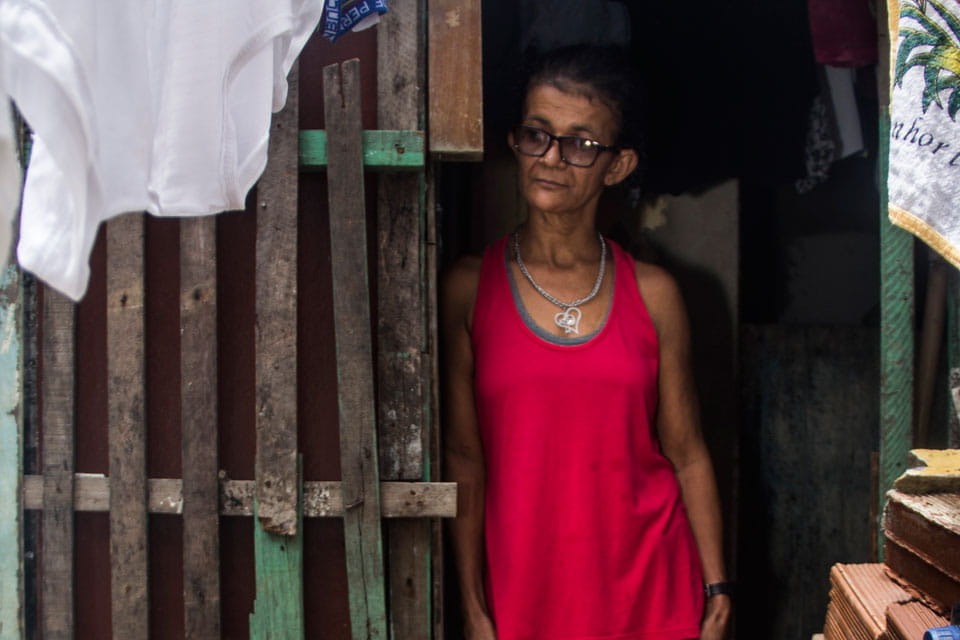
When Maria das Graças saw the dead body of her neighbour floating past her house during a flood, she knew she had to take action. She began to collect plastic bottles from the litter strewn on the banks of the Tejipió river in Recife, Brazil: ‘I wanted to try and do something to reduce the waste going into the river,’ she said, knowing that the plastic was blocking waterways and exacerbating the frequent floods, while the authorities were failing to act.
People in Maria’s community are among some two billion worldwide who have no rubbish collections. Supported by their local Baptist Church and backed by Tearfund, they mobilised themselves to build a network of entrepreneurs who can make a living out of collecting the waste, and even turn it into products they can sell. Maria stores her salvaged bottles until she has enough to sell to a litter collector. The two Reals - about 40p - she receives for every 50 plastic bottles she collects help Maria to provide a better standard of living for two children, as well as making the environment a better place for her family and generations to come.
Democratic Republic of Congo
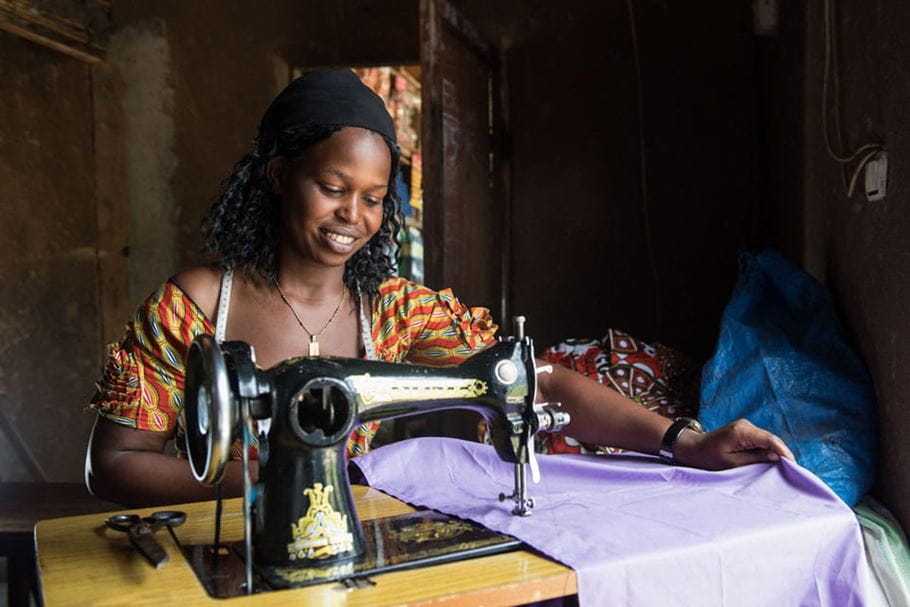
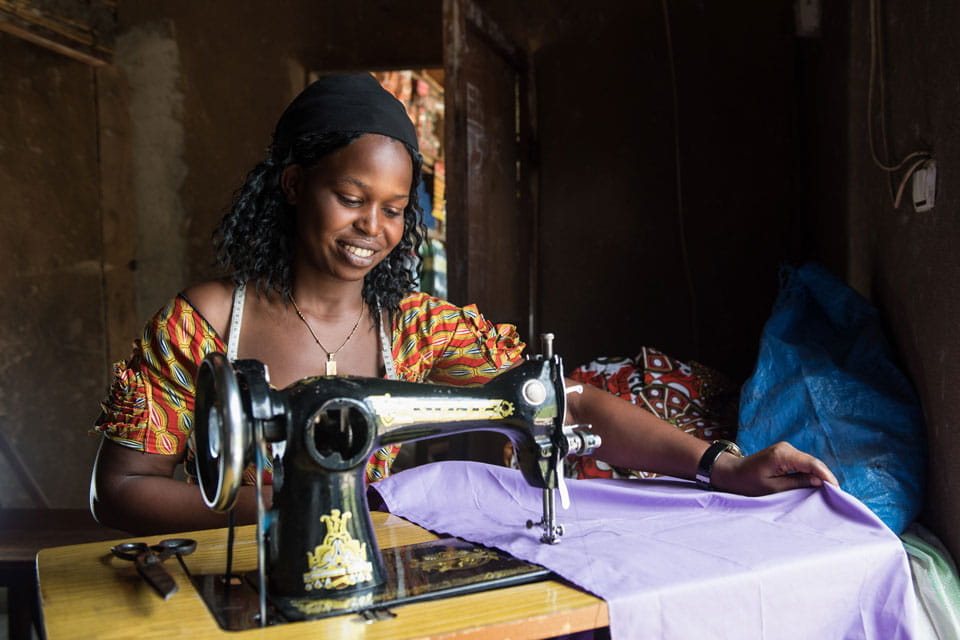
‘It's up to me to decide who I will marry,’ says 22-year-old Birungi from a remote rural village in the Democratic Republic of Congo (DRC). Her bold statement about her future family life is only possible because she took the chance to become the first woman in her community to learn tailoring skills and set up her own business - and she wants to inspire more girls to do the same.
Previously Birungi had no choice but to devote her life to her siblings: ‘It was decided, because I was the eldest girl, I would not go to school like my brothers,’ says Birungi. ‘Instead I should stay at home to look after my younger brother and sister. I was very sad.’ Having no formal education, Birungi’s only option seemed to be to marry a man chosen for her and live a life of subjugation and obedience.
Her lifeline came when her uncle heard about skills training for young people who missed out on school. She learned to make and repair clothes and, thanks to the provision of a sewing machine, along with the training, from Tearfund’s local partner Action Entraide, has set up a thriving business.
Share this page
Share this page to spread the word and help support those in need.

Get our email updates
Learn about our work and stay in touch with Tearfund. Hear about our news, activities and appeals by email.
Sign up now - Get our email updates





.png)
